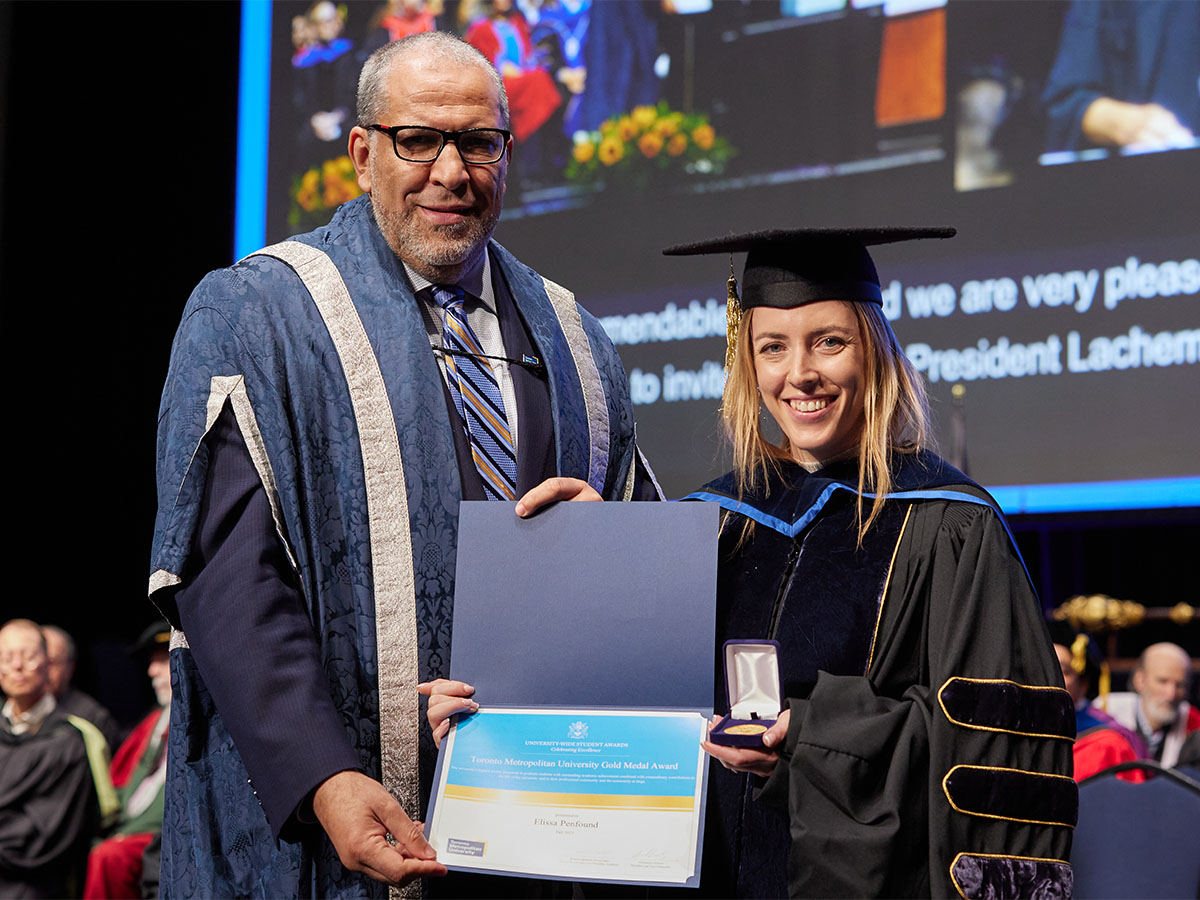YSGPS Gold Medallist fuelled by passion for environment

“Winning the Gold Medal was an amazing experience,” said EnSciMan PhD alumna Dr. Elissa Penfound. “It was exciting and an honour to be recognized by the university.”
Dr. Elissa Penfound wants to tell the full story of wetland loss and environmental degradation in the Great Lakes region.
The Environmental Applied Science and Management (EnSciMan) PhD alumna was recently awarded a TMU Gold Medal at Convocation. Gold Medals are awarded to one student from each faculty who demonstrates outstanding academic achievement and involvement in the university community.
Using geographic information systems, deep learning and machine learning, Dr. Penfound is exploring the anthropogenic drivers of wetland loss through historical, present and future perspectives. Her dissertation reveals the wide extent of wetland loss in southern Ontario due to human activity, and uses self-organizing map clustering to measure how changing land cover influences the flood mitigation attributes of urban wetlands in Toronto and Chicago. By employing predictive modelling, Dr. Penfound’s research showcases how increasing development could exacerbate wetland loss in the Greater Toronto and Hamilton Area over the next 20 years.
What inspires your research?
The Great Lakes Region has experienced devastating wetland loss over the past several centuries. My goal with this research was to combine temporal and spatial data to present a long-term story of this wetland loss to highlight the extent of the environmental degradation that has occurred. The third manuscript was particularly inspired by the provincial government's 2022 amendments to the Greenbelt boundaries to increase housing development in the region, a decision which has recently been reversed.
What advice do you have for women in STEM?
Be curious, explore topics that interest and excite you, and advocate for yourself and your work.
How is your TMU graduate education preparing you to be career-ready?
Course work has provided me with foundational knowledge in my field, my research and internship experiences have allowed me to gain technical expertise, and TMU has offered many employment opportunities that have allowed me to grow professionally.
What advice do you have for graduate students?
Engage with your supervisor, course instructors and your academic colleagues, participate in extracurricular activities, and ask for critical feedback on your work. Also, a great way to become an expert at a topic is to teach it to other people.